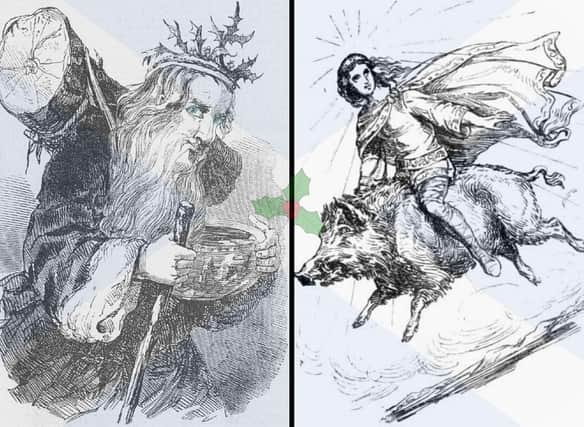Scotland's colourful and rich history has long had its very own set of Christmas traditions - even if it was banned circa 400 years ago!
Around the 1600s, the UK was ruled by Oliver Cromwell who banned Christmas (or “Christ’s Mass” as it was then). However, when he fell from power the ban lifted everywhere but in Scotland which was, in short, due to Presbyterianism.
Scots celebrating Christmas did so discreetly as the event, which was known as Yule in those days. It was stripped from the Calendar and harsh punishments awaited anyone taking part in the celebrations. For Scots, this time was reduced to little more than another work day until 1958 when Christmas Day was finally recognised as a public holiday once again.
Despite this gap in Scottish festivity the country still boasts a myriad of traditions as even prior to the Reformation, the Winter Solstice (i.e., Yule or “Yogh” in Older Scots) was celebrated by druids, pagans and vikings - ancestors who roamed Scotland long before us.
From why we hang mistletoe to the origins of Yule Bread, here are 12 old Christmas traditions and customs of Scotland.
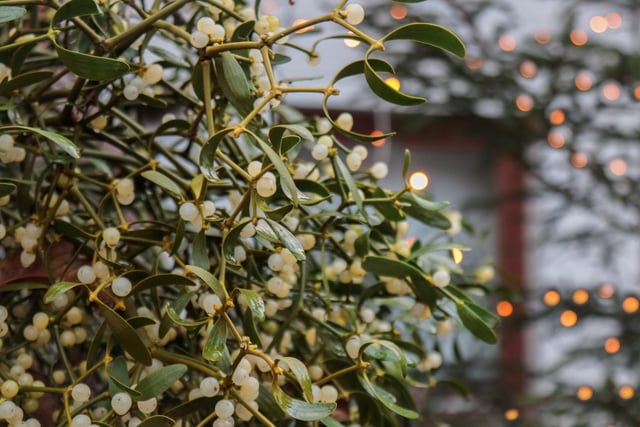
1. Mistletoe - adding greenery to the home
When Scotland was inhabited by ancient Celtic druids and pagans they celebrated Yule (or the Winter Solstice) by bringing greenery into their homes as it symbolised life amid the dark nights associated with death. Mistletoe was used as it was thought to have fertility properties and even to this day the plant compels people to kiss beneath it. Holly wreaths are another custom that ancient Celts hung outside their homes as the icy cold winds of Winter were thought to be dangerous spirits and the wreaths offered protections from these ‘wraiths’. Photo: MelanieMaya via Canva Pro
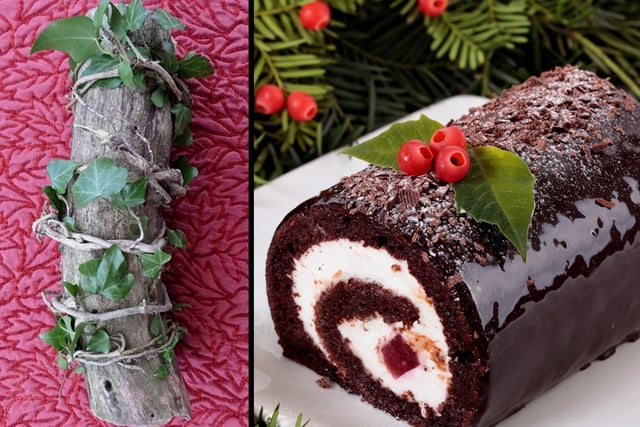
2. Yule Logs and their symbolism
The tradition of Yule logs dates back to the Druids, they believed that the sun stood still for twelve days in the middle of Winter and so they lit a log at this time to combat the darkness, banish evil spirits and bring good fortune for the year ahead. When baking Yule bread, a tradition often associated with Shetland and Orkney, the loaf is turned into a circle which represents the Sun and the caraway seeds used are said to represent the “Sìdhe” or Winter spirits. Photo: Junghee Choi via Canva Pro - Rosser1954 via WikiCommons
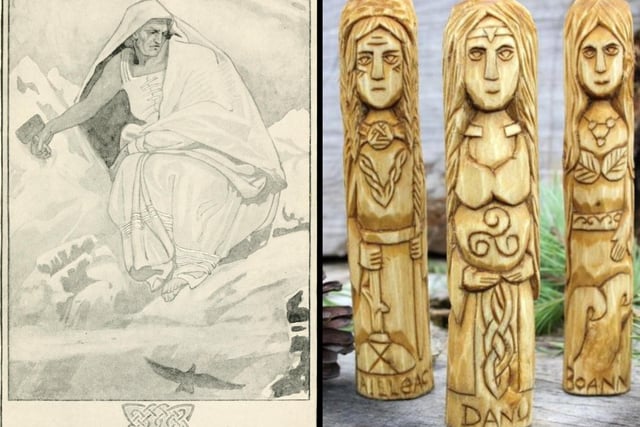
3. The Cailleach
In a bid to ward off evil spirits, Scots used the Cailleach or ‘the Hag of Winter’ totem. This was a log carved with the face of an old woman, a mythological creature that brought in long nights and cold weather. By burning the totem, our ancestors believed that it could banish the cold darkness and dispel any lingering bad luck in the home. Photo: via WikiCommons / Jesse Meyer-Crosby via Pinterest
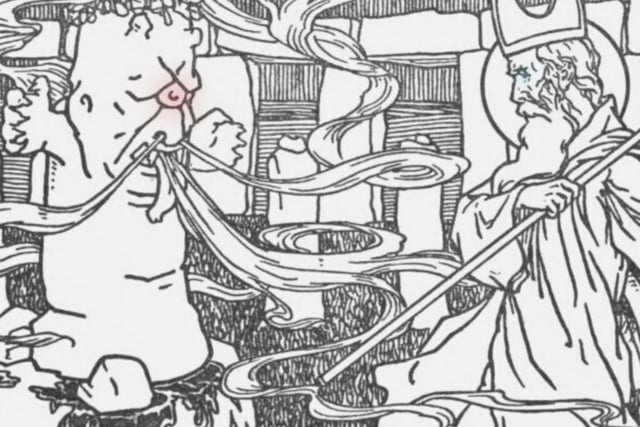
4. Crom Dubh na Nollaig - The dark Christmas spirit
For the children of Islay (an island in the Scottish Hebrides) this evil spirit which translates to “the dark crooked one of Christmas” would visit them if they behaved badly during the season. In a 1969 interview with a resident of Islay, Peggy Earl, she recalled that she was “absolutely terrified” of this creature who would reportedly howl down chimneys in Islay. Photo: via WikiCommons
